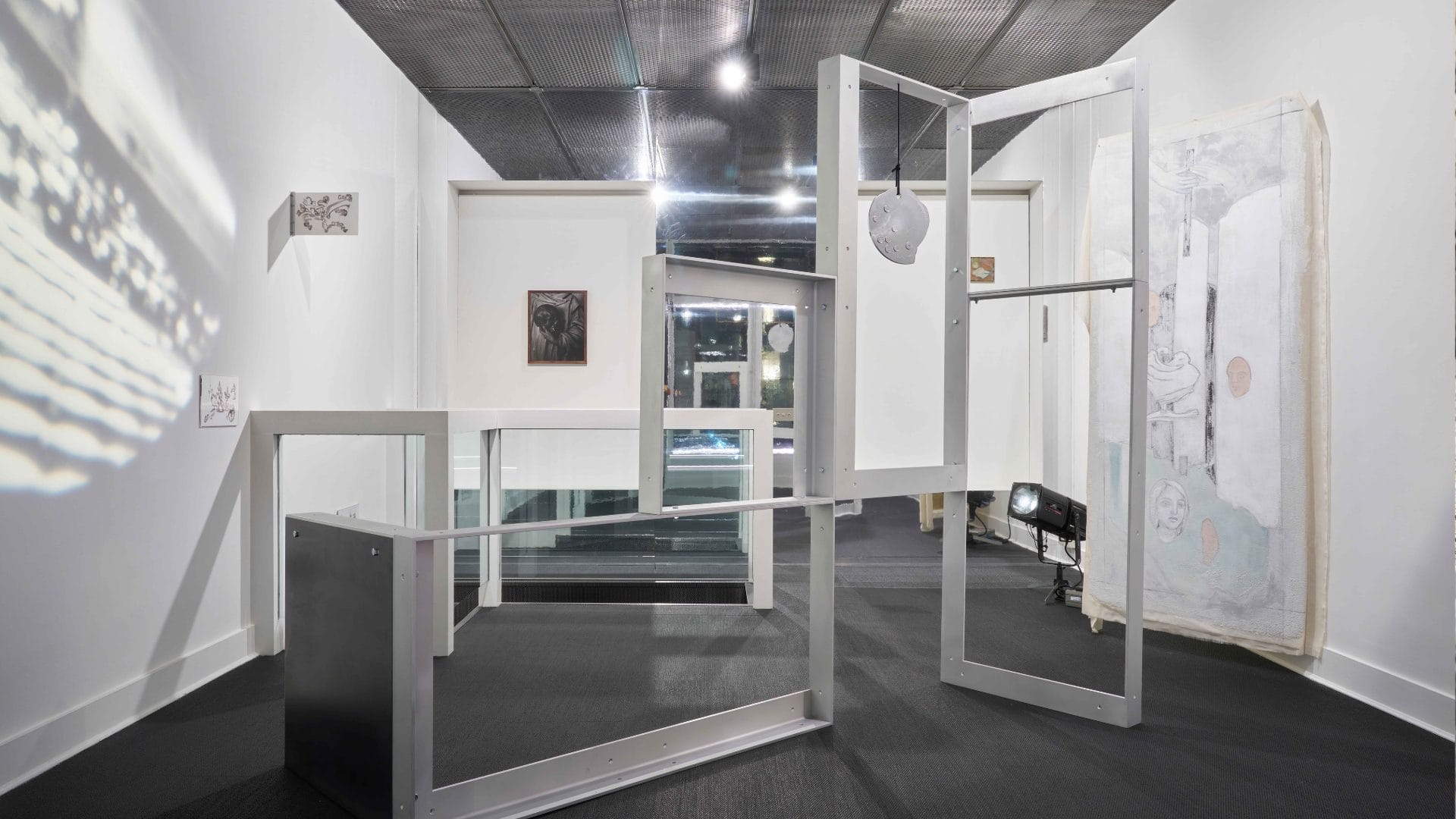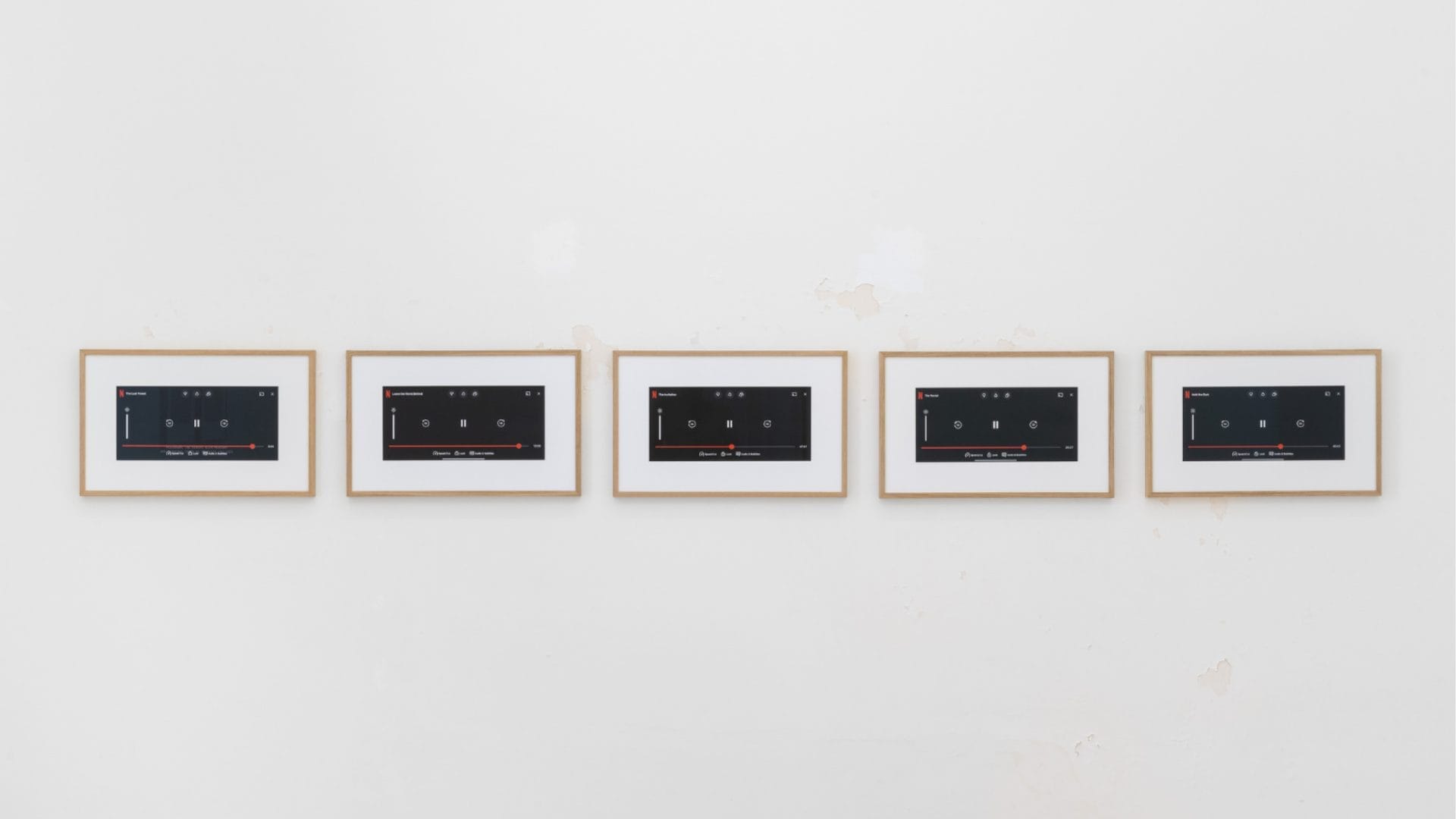
“Total Theatre ESP”at Belmacz, London
“Total Theatre ESP” by Bora Baboçi, Toby Christian, Michael Kleine, Cosima zu Knyphausen, Camilla Løw, Agata Madejska, Rechonski, Tereza Zelenková, at Belmacz, London, 11.10.2024 – 20.12.2024.
The stage is bare. A landscape cut from the pines of a mind. Lights, timeless and exuding life. Backstage latent. Ready. Total Theatre ESP is Belmacz’s embodiment of Edward Gordon Craig (b.1872, Stevenage UK — d.1966, Vence, France); a ‘Craigische vorstellung’, an act of Craigian imagination. An actor, illustrator, director, a scenic designer, thinker and revolutionary philosopher in the Art of Theatre, Craig don’ many hats but this gaze was always attuned to the production dramatic stage.
He was a doer. Restless in his search for Higher Forms of Beauty, Craig rejected the particularities of the early 20th-century and its fancy for Realist Theatre — a tendency to impose the physical fashions of the day on a production rather than letting the formalities of the performative work abound an audience’s eye, be these action, scene or voice — embracing instead simple, severe expressions or the base characteristics of theatrical design, the figure in a space. This theatre is poetry in motion. Direct and uncompromising, Craig, like many modernist artists, was a man with a strong perspective, “The duty of the Theatre (both as Art and as an Institution) is to awaken more calmness and more wisdom in mankind by the inspiration exhaling from its beauty” (Edward Gordon Craig, Towards a New Theatre).
This vision has gone on to resonate across ages, across disciplines. Indeed, today Craig’s refusal to make plays with naive pizzazz speaks directly to the current state of the world, one fettered to elaborate staging of a sociocultural life. Total Theatre ESP leans into Craig’s search for poetic sublimity. Rather than a narrative theme, or some kind of frenzied soap opera, the exhibition unfolds through a modernist meeting of artistic practices. Featuring sculpture and photography, works on and from paper, each artist embraces the formalities of their chosen material, allowing Higher Ideals to direct and guide. Dramaturgically, Total Theatre ESP evolves from a diagonal stage — a three-dimensional place for extrasensory perception. Sculpture creates this in-ordinary environment, with flying candle lights (Michael Kleine) and a porous screen (Camilla Løw) situating us within a place all strangely in mood.
As the exhibition arcs, moments and memories, reconstituted through oblique views — be these photographic (Tereza Zelenková), penned, painted or projected (Agata Madejska, Cosima zu Knyphausen and Rechonski respectively) — appear as non-diegetic soliloquies. Representational and not, these two-dimensional images toy with us, demanding a cognitive engagement with the formalities of their enunciative actions, reminding us that there is always more behind a show and script. Operating between realms, the mind’s visions of a mysterious past and the physicality of the present, ghostly form (Bora Baboçi and Toby Christian) accentuate this speaking through material cues.
Meta-reliefs, these traces of narrative awaken us to the performative possibility found in the Craigian and the particular.







fakewhale
Founded in 2021, Fakewhale advocates the digital art market's evolution. Viewing NFT technology as a container for art, and leveraging the expansive scope of digital culture, Fakewhale strives to shape a new ecosystem in which art and technology become the starting point, rather than the final destination.
You may also like
Fakewhale in Dialogue with Matteo Cantarella
On the occasion of this conversation with Matteo Cantarella, founder of the eponymous gallery in Cop
Ran Slavin, Paradise Now (Vol2) at MUZA Eretz Israel Museum, Tel Aviv
“Paradise Now (Vol2)” by Ran Slavin, curated by Raz Samira, at MUZA Eretz Israel Museum,
FW Spotlight: Top Submissions of January
Perception is an unstable process, always hovering between what we believe to be real and what slips




